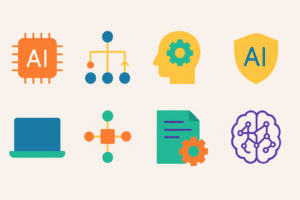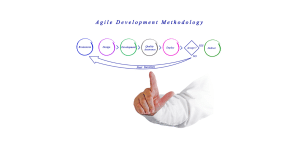humans, we are bound to encounter challenges, struggles, and setbacks in our lives. These situations can be emotionally, mentally, and physically draining, often causing us to feel helpless and overwhelmed. However, developing resilience is essential in overcoming these obstacles and bouncing back stronger. In this article, we will explore the science behind resilience, strategies for developing it, and how it can positively impact our lives.

Understanding Resilience and Its Importance
Resilience is the ability to adapt and cope with adversity, trauma, and stress. It is not a fixed trait, but rather a set of skills and behaviors that can be developed and strengthened over time. Resilience helps us to maintain a positive outlook, regulate our emotions, and effectively manage stress. It is a critical factor in achieving personal and professional success, enhancing well-being, and improving mental health.
The Science Behind Building Resilience
Research shows that resilience is not just about personality traits, but also about the way our brains respond to stress. The brain’s ability to rewire and adapt to changing circumstances is known as neuroplasticity. By challenging ourselves and facing difficult situations head-on, we can develop new neural pathways and strengthen existing ones. This rewiring of the brain can make us more resilient to stress and adversity.
Strategies for Developing Resilience – Self-Awareness and Self-Care
Self-awareness and self-care are crucial components of building resilience. Self-awareness involves understanding our thoughts, feelings, and behaviors, and how they impact our overall well-being. By practicing mindfulness, journaling, and seeking feedback from others, we can become more self-aware and better equipped to manage stress.
Self-care involves taking care of our physical, emotional, and mental health. This includes getting enough sleep, eating a healthy diet, exercising regularly, and engaging in activities that bring us joy and fulfillment. By prioritizing self-care, we can build our resilience and better manage stress and adversity.
Strategies for Developing Resilience – Positive Thinking and Reframing
Positive thinking and reframing are powerful tools for building resilience. Our thoughts and beliefs can significantly impact our emotions and behavior. By practicing positive thinking, we can reframe negative situations and find the silver lining in challenging experiences.
Reframing involves looking at a situation from a different perspective. Instead of focusing on the negative aspects of a situation, we can try to find the positive and learn from the experience. By reframing our thoughts, we can build our resilience and better manage stress and adversity.
Strategies for Developing Resilience – Seeking Support and Building Relationships
Seeking support and building relationships are critical components of building resilience. Humans are social beings, and having a support system can significantly impact our ability to cope with stress and adversity. By seeking support from friends, family, or a professional, we can gain perspective, find comfort, and feel less alone.
Building positive relationships is also essential for building resilience. By surrounding ourselves with people who uplift and inspire us, we can gain the confidence and support needed to overcome challenges and bounce back stronger.
Strategies for Developing Resilience – Setting Goals and Taking Action
Setting goals and taking action are important components of building resilience. By setting achievable goals, we can build our confidence and sense of control. Taking action towards our goals can help us to overcome obstacles, build resilience, and achieve personal and professional success.
Overcoming Obstacles and Bouncing Back from Failures
Overcoming obstacles and bouncing back from failures are essential components of building resilience. Failure is a natural part of life, and it is how we respond to it that defines us. By reframing failure as an opportunity to learn and grow, we can bounce back stronger and more resilient.
Developing Resilience in the Workplace
Building resilience in the workplace is crucial for achieving personal and professional success. By fostering a culture of resilience, employers can help employees to better manage stress, overcome challenges, and bounce back from setbacks. This can lead to increased productivity, better mental health, and a more positive work environment.
Building Resilience in Children and Adolescents
Building resilience in children and adolescents is essential for their overall well-being and success. By teaching children coping skills, positive thinking, and providing support, we can help them to develop resilience and better manage stress and adversity. This can lead to increased confidence, better mental health, and improved academic performance.
Conclusion: The Importance of Resilience in Life and How to Continue Building It
In conclusion, resilience is an essential skill for achieving personal and professional success, enhancing well-being, and improving mental health. By understanding the science behind resilience and practicing strategies such as self-awareness, positive thinking, seeking support, and setting goals, we can build our resilience and better manage stress and adversity. Whether in the workplace, at home, or in our personal lives, resilience is a key factor in bouncing back stronger and achieving our goals.











